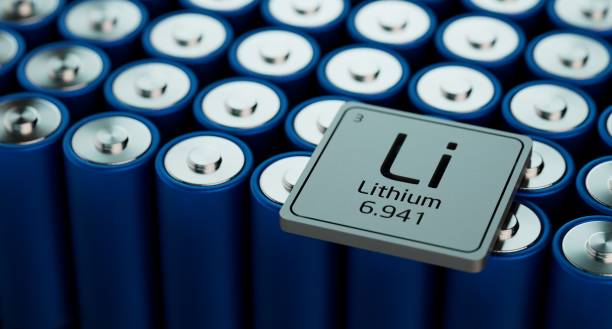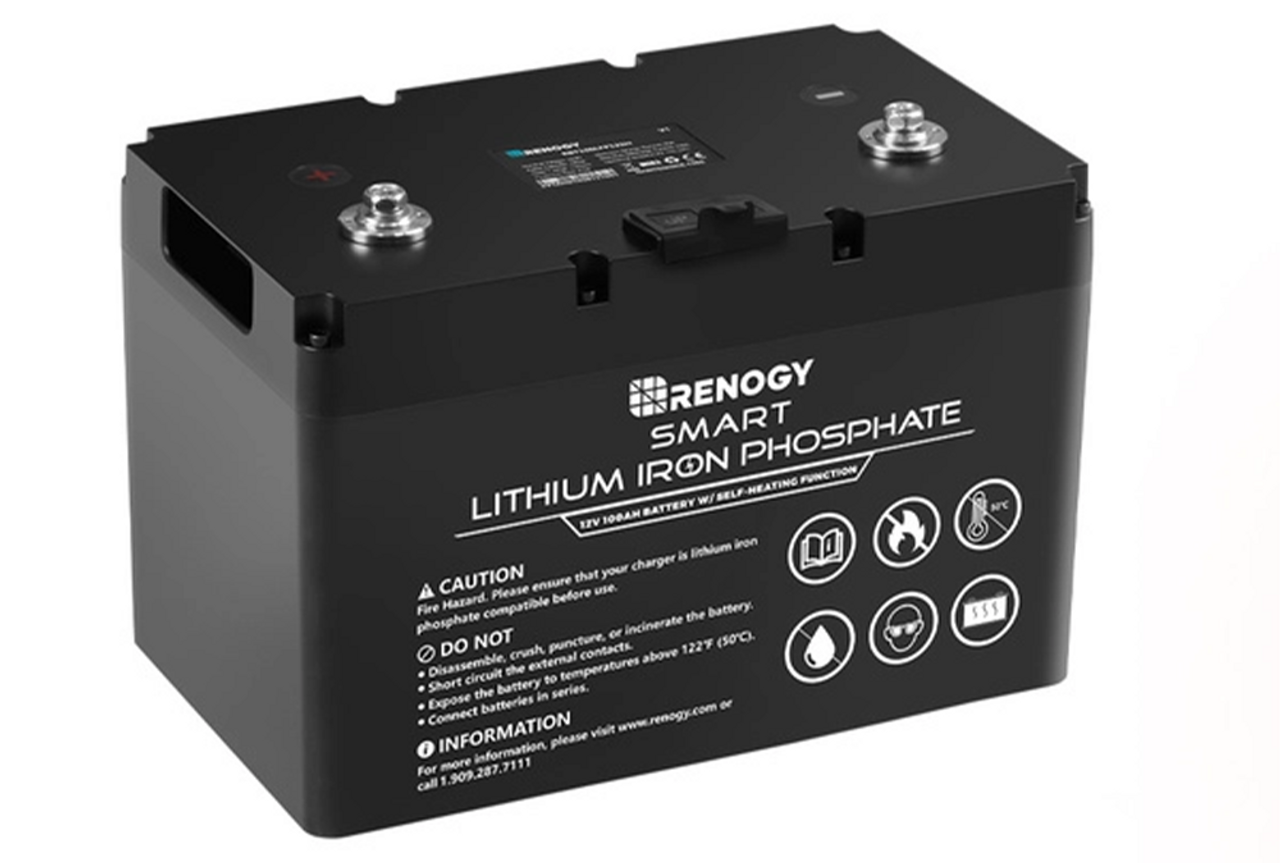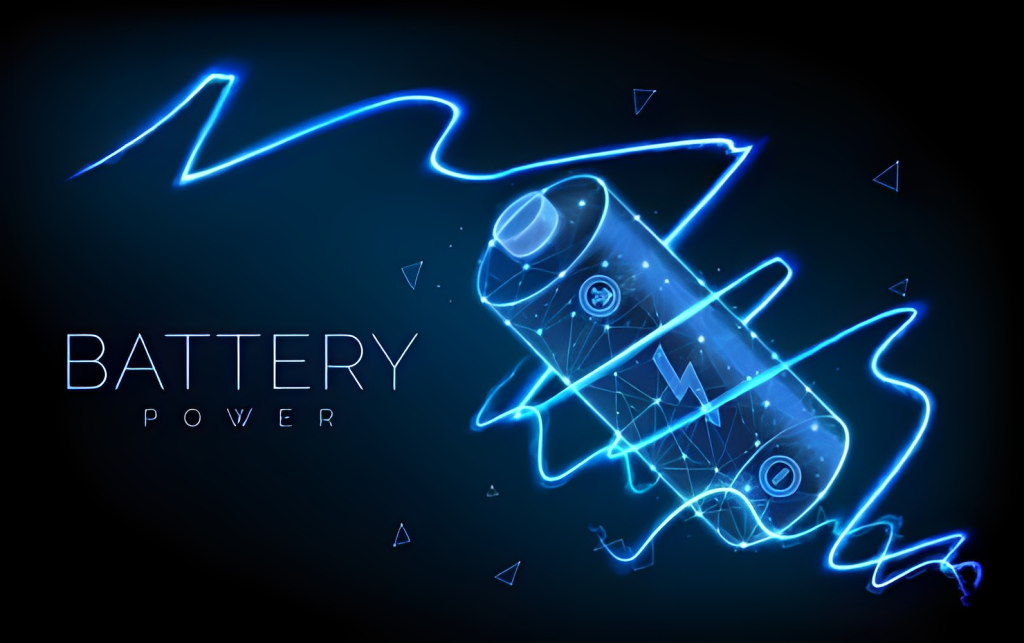Power of Lithium batteries are commonly used for powering electronic devices and vehicles. These high-energy-density batteries provide long-lasting and reliable power for a variety of applications.
Lithium batteries are the preferred option for everything from smartphones and laptops to electric cars and drones due to their lightweight design, fast recharging capability, and high energy storage capacity.
With their ability to deliver consistent power output and a longer lifespan than other batteries, lithium batteries have revolutionized how we use portable electronics and electric transportation.
As technology continues to advance, lithium batteries are likely to play an even more prominent role in our everyday lives, providing efficient and sustainable energy solutions.
The Science Behind Lithium Batteries
Lithium batteries have revolutionized the world of portable electronic devices. From smartphones and laptops to electric vehicles and power tools, these compact and powerful batteries have become indispensable to our everyday lives. Understanding the science behind the functionality of lithium batteries can help us appreciate their advantages and why they are widely used in various applications.
How Do Lithium Batteries Work?
Lithium batteries function based on a unique electrochemical principle. Unlike traditional batteries that rely on chemical reactions involving heavy metals such as lead or cadmium, lithium batteries employ lithium ions to generate a flow of electrons, which produces an electric current.
The critical components of a lithium battery include:
- Anode: Made of graphite, the anode is the negative electrode where lithium ions are stored when the battery is charged.
- Cathode: Typically composed of metal oxides, the cathode is the positive electrode that accepts the lithium ions and releases electrons during discharge.
- Electrolyte: Acts as a bridge between the anode and cathode, allowing the movement of lithium ions while preventing the flow of electrons.
During charging, lithium ions travel from the cathode through the electrolyte to the anode, where they are stored.
When the battery is connected to a device, the stored lithium ions return to the cathode, generating a flow of electrons that powers the device. This movement of lithium ions back and forth between the anode and cathode enables the rechargeability of lithium batteries.
Advantages Of Lithium Batteries
Lithium batteries offer numerous advantages over other types of batteries:
- High Energy Density: Lithium batteries can store a lot of energy in a small package because of their high density. They are, therefore, perfect for portability devices where space is limited.
- Longer Lifespan: Compared to traditional batteries, lithium batteries have a longer lifespan, making them more economical.
- Fast Charging: Lithium batteries can be charged quickly, allowing for convenient and efficient use.
- Low Self-Discharge: These batteries have a low rate, meaning they retain their charge for extended periods when unused.
- Environmentally Friendly: Lead and cadmium are two examples of heavy elements absent from lithium batteries, making them safer for the environment.
Considering their superior performance and versatility, it’s no wonder that lithium batteries have become the preferred choice for various applications, ranging from consumer electronics to renewable energy storage.
Their power, efficiency, and reliability make them an essential component of our modern world.

Applications Of Lithium Batteries
Lithium batteries are widely used in various applications, including consumer electronics, electric vehicles, and renewable energy storage.
Their high energy density and long lifespan make them ideal for powering portable devices, vehicles, and grid-connected systems. This versatile power source continues to be a preferred choice for many industries due to its reliability and efficiency.
Applications of Lithium BatteriesConsumer Electronics
Lithium batteries have become an indispensable power source for various consumer electronics. These batteries provide long-lasting and reliable energy for smartphones, tablets, laptops, digital cameras, and portable gaming consoles.
Lithium batteries’ lightweight and high energy density make them perfect for these compact devices requiring a durable and efficient power supply.
Whether capturing memories with your digital camera or staying connected to your smartphone, lithium batteries ensure that these devices stay powered up for longer, keeping you connected and entertained.
Electric Vehicles and Renewable Energy
Lithium batteries have revolutionized the field of electric vehicles (EVs) and renewable energy solutions. Lithium batteries’ high energy density and charging efficiency make them ideal for powering EVs, which have become increasingly popular as an eco-friendly alternative to traditional internal combustion engine vehicles.
EVs powered by lithium batteries offer zero-emission transportation and boast longer driving ranges, making them a viable option for everyday commuting.
In addition to EVs, lithium batteries are crucial in energy storage devices that use renewable energy. These batteries enable the efficient collection and storage of solar and wind energy, smoothing out fluctuations in power generation and ensuring a stable supply of electricity.
The ability of lithium batteries to store and release energy on demand makes them an essential component of renewable energy systems, fostering the transition to a greener and more sustainable future.
Overall, the applications of lithium batteries span from electric cars and renewable energy systems to consumer gadgets. Their lightweight design, high energy density, and long-lasting power make them a preferred choice across various industries.
Whether powering your smartphone or contributing to a cleaner planet by driving an electric vehicle, lithium batteries continue to power our world and shape our future.
Challenges And Future Developments
Lithium batteries have revolutionized how we use electronics, supplying energy for anything from electric automobiles to cell phones.
However, with great power comes significant challenges and the need for continual innovation. Let’s delve into the challenges of lithium battery technology and explore future developments and sustainability.
Challenges In Lithium Battery Technology
1. Thermal Management: Maintaining safe operating temperatures is crucial to prevent the risk of thermal runaway, which can lead to fires and explosions.
2. Cycling Performance: Lithium batteries may experience reduced performance over repeated charge-discharge cycles, impacting their longevity.
3. Safety Concerns: Ensuring the integrity of lithium batteries to prevent leakage and chemical reactions is vital for safety in use and disposal.
Future Innovations And Sustainability
1. Solid-state batteries assure excellent safety and higher energy density and can be a game-changer for electric vehicles and portable electronics.
2. Advancements in Charging Technology: Rapid charging techniques and wireless charging options are poised to enhance convenience and efficiency.
3. Sustainable Materials: Integrating recyclable and environmentally friendly materials into battery production will lead to a more sustainable future.

Credit: au.renogy.com
Environmental Impact And Recycling
Lithium batteries have become widely used in various applications, including smartphones, electric vehicles, and laptops. However, their production and disposal processes can have a significant environmental impact.
Recycling lithium batteries is crucial to reduce waste and recover valuable resources, such as lithium, cobalt, and nickel while minimizing the release of harmful substances into the environment.
Environmental Concerns
Lithium The excellent energy density of batteries has led to a significant increase in their popularity and long lifespan. However, their production and disposal can have profound environmental implications.
Understanding the environmental concerns associated with lithium batteries is crucial to ensure the appropriate steps are taken for their recycling and waste management.
Lithium Battery Recycling
Proper recycling of lithium batteries is paramount to minimize their negative environmental impact. These batteries contain harmful and potentially toxic elements like nickel, cobalt, and lithium.
If not disposed of correctly, these materials can contaminate soil and water sources, posing health hazards to humans and wildlife.
Lithium Battery Recycling:
- Recycling lithium batteries can help recover valuable metals, reduce the mining of new resources, and decrease environmental pollution.
- Recycling facilities play a crucial role in adequately disposing of lithium batteries by disassembling and processing them in an environmentally friendly manner.
- Recycling involves recovering valuable reusable metals such as nickel, cobalt, and lithium in producing new batteries or other industries.
- By prioritizing recycling, we can minimize the demand for new battery production, conserve natural resources, and reduce the environmental burden of mining and manufacturing processes.
Benefits of Lithium Battery Recycling:
- Environmental Conservation: Recycling these batteries prevents the release of toxic substances into the environment, safeguarding ecosystems and human health.
- Resource Conservation: Recovering valuable metals through recycling reduces the need for new resource extraction, preserves natural reserves, and decreases the carbon footprint.
- Economic Opportunities: Recycling lithium Batteries can promote the growth of a circular economy and generate jobs in the recycling sector economy.
- Sustainable Energy Transition: As the demand for lithium batteries increases in renewable energy storage, proper recycling ensures the sustainable growth of the clean energy sector.
Overall, the environmental concerns surrounding lithium batteries necessitate responsible recycling practices. Adopting effective recycling methods can mitigate the environmental impact and contribute to a more sustainable future.
Conclusion And Final Thoughts
Lithium batteries find wide-ranging uses in various industries, including consumer electronics, electric vehicles, and renewable energy systems. Their lightweight design, high energy density, and longer lifespan make them popular for powering electronic devices and vehicles.
Lithium batteries are essential for efficient energy storage and usage, whether it’s your smartphone, electric car, or solar-powered home.
Lithium Batteries: A Sustainable Future?
Lithium batteries have revolutionized the way we power our devices. These rechargeable powerhouses, from electric cars to renewable energy storage systems to cellphones and laptops, have become indispensable.
But what makes lithium batteries so unique? Let’s explore the innovations and possibilities that make them a sustainable solution for our energy needs.
Innovations And Possibilities
Lithium Compared to traditional batteries, batteries provide several benefits. Their high energy density allows for longer-lasting power in portable devices while maintaining a compact size.
With a higher charge retention rate, lithium batteries can hold their charge for longer, making them ideal for gadgets that aren’t frequently used. Additionally, minimal power loss is guaranteed by a low self-discharge rate when not used.
Moreover, lithium batteries have a faster charging time than other battery types, enabling us to power up our devices quickly.
They also have a longer lifespan and can endure multiple charge-discharge cycles, reducing the need for frequent replacements and ensuring both cost-effectiveness and environmental sustainability.
Another exciting possibility with lithium batteries is their application in electric vehicles (EVs). The high energy density of these batteries provides a more extended driving range, reducing the need for frequent recharging.
As we move towards a greener future, EVs powered by lithium batteries are a promising alternative to combustion engine vehicles, reducing greenhouse emissions and helping combat global climate change.
In the field of renewable energy, lithium batteries are essential for storing electricity generated from sources like wind and solar energy. Their ability to store large amounts of energy and their high efficiency allows for a reliable and sustainable energy supply, independent of weather conditions.
This energy storage capacity also helps balance the fluctuating demand and supply of electricity, resulting in a more stable and efficient grid system.
As technology continues to advance, lithium batteries are becoming even more efficient, reliable, and environmentally friendly. Researchers are constantly exploring new ways to improve their performance, increase their energy storage capacity, and reduce their environmental impact.
With ongoing innovations, we can expect lithium batteries to play an even more significant role in our sustainable future.
Lithium batteries have undoubtedly transformed how we power our devices and provide sustainable solutions for our energy needs. Their numerous advantages, including increased longevity, quicker charging, high energy density time, and environmental friendliness, make them a reliable and responsible choice for various applications.
Lithium batteries have opened doors to a more efficient, eco-friendly future, from portable gadgets to electric vehicles and renewable energy systems.
As we continue to embrace these innovations and explore new possibilities, we can confidently say that lithium batteries are here to stay—driving us toward a sustainable tomorrow.

Discover Battery Warranty
As of my last knowledge update in January 2022, Discover Battery is a company that produces batteries, including advanced energy storage solutions. However, specific details about their warranty policies may have changed since then.
To find the most accurate and up-to-date information about Discover Battery warranties, I recommend visiting their official website or contacting their customer support directly.
Look for a “Warranty” section on their website, where you can find detailed information about the warranty coverage, duration, and specific terms and conditions.
If you have a specific type or model of Discover Battery in mind, check for warranty details related to that particular product. Manufacturers often provide warranty information in the product documentation or user manuals.
Remember that warranty information can vary depending on the product and region, so it’s crucial to refer to the official sources for the most accurate and current details.
Frequently Asked Questions On Discover the Power of Lithium Batteries
What Are Lithium Batteries Primarily Used For?
Lithium batteries are primarily used to power portable electronic devices such as smartphones, laptops, and cameras. They are also used in electric vehicles, renewable energy storage systems, and medical devices because of their extended lifespan and high energy density.
Are Lithium Batteries Safe To Use?
Lithium batteries are generally safe to use if handled and stored correctly. However, mishandling or misuse can lead to overheating, fire, or even explosion. It is essential to follow manufacturer guidelines, avoid puncturing or damaging the battery, and store them in a cool, dry place.
How Long Do Lithium Batteries Last?
The lifespan of lithium batteries depends on various factors such as usage, temperature, and charging habits. On average, lithium batteries can last between 2 to 10 years. However, regular usage and constant charging can lead to a gradual decrease in their capacity over time.
How to Do Lithium Batteries Work?
Lithium batteries work on the principle of movement of ions between positive and negative electrodes. During discharge, lithium ions (anode) move from the negative electrode to the positive electrode (cathode), creating a flow of electrons and generating electrical energy. The process is reversed during charging, with lithium ions returning to the negative electrode.
Conclusion
Lithium batteries have become essential power sources in various industries, from electronics to electric vehicles. Their lightweight and long-lasting nature makes them perfect for portable gadgets and energy storage solutions.
With their increasing demand, it’s clear that lithium batteries will continue to play a crucial role in powering the future.

I am a Mahdi . I have four two of experience in Technology and all types of Battery’s like Solar Battery, Car Battery, Lithium Battery etc. So I work on solving these issues and give various tips on these issues.
